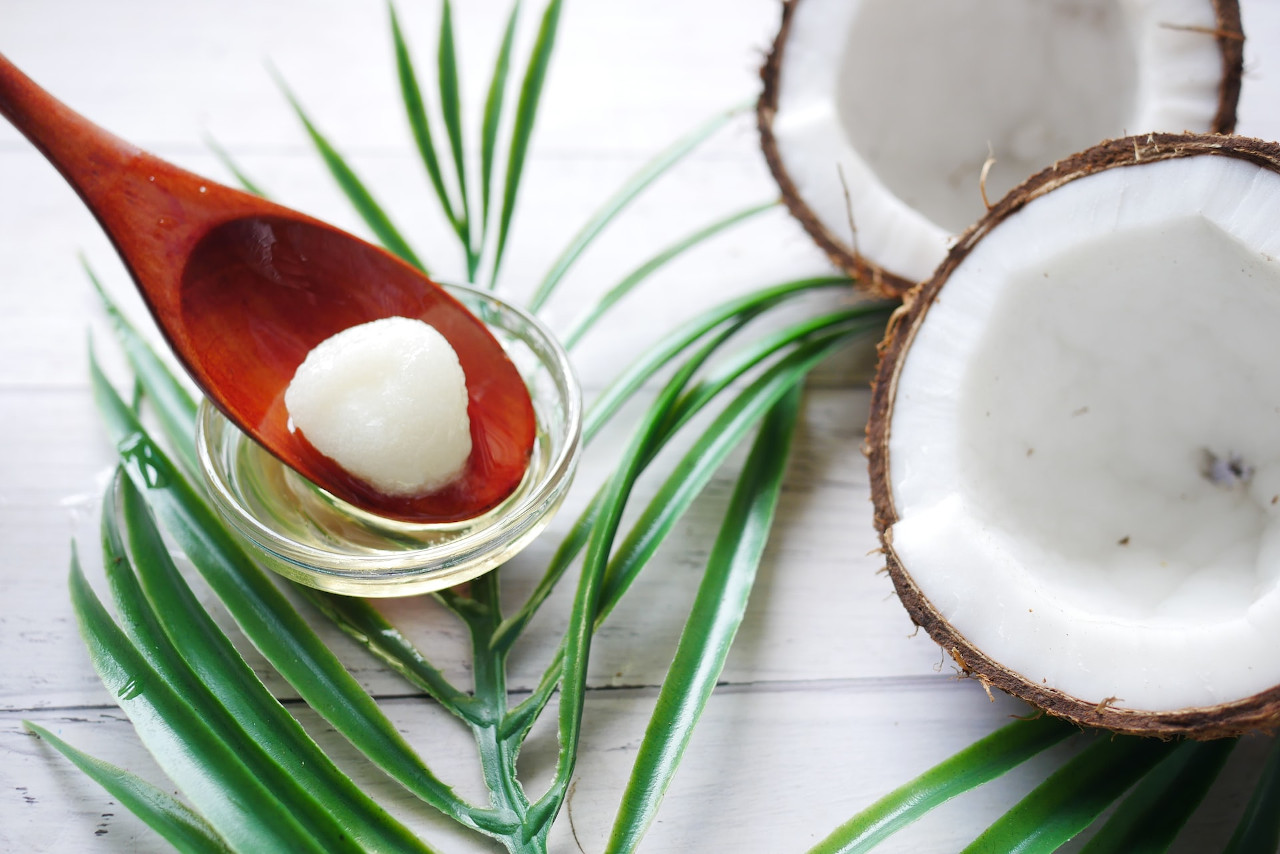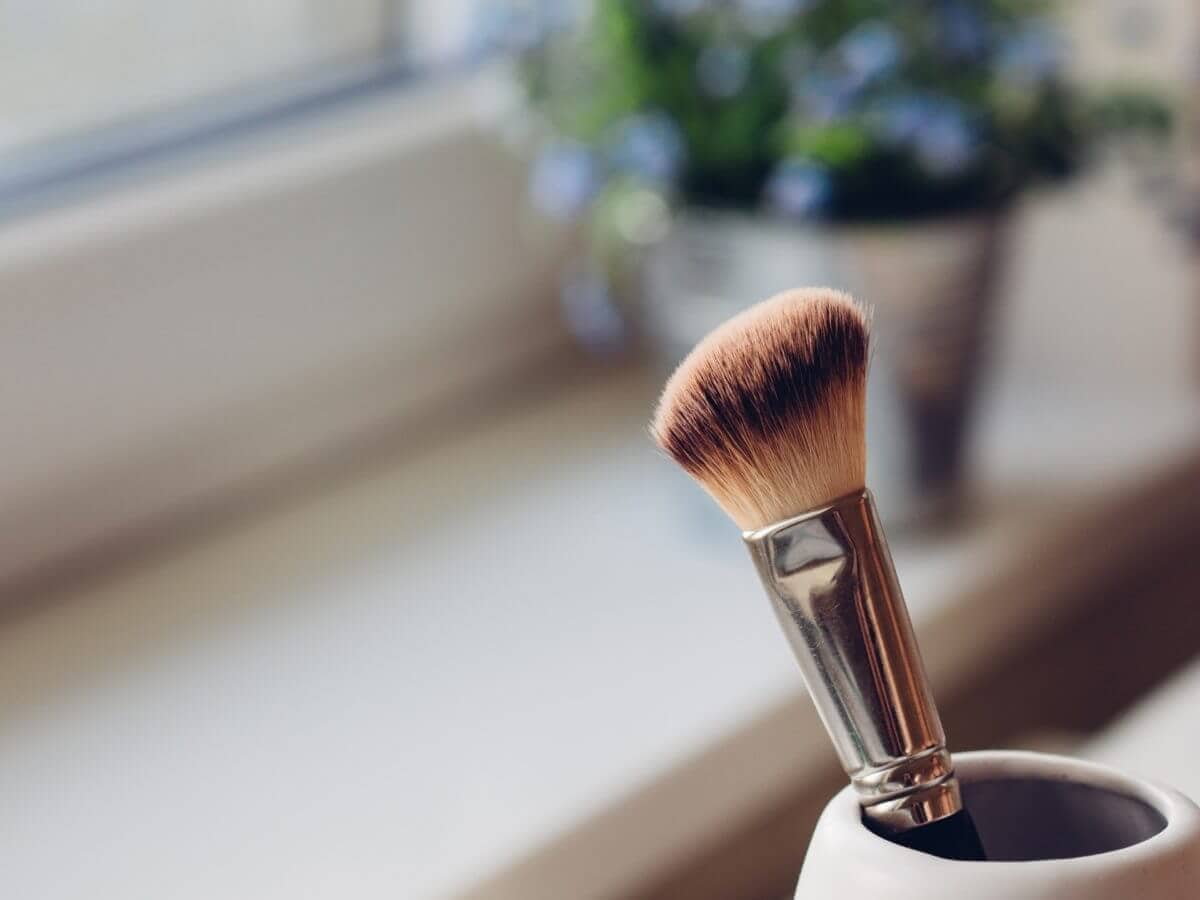With ultra gentle plant-based formulas that are kind on sensitive skin and beautiful scents of essential oils, organic skin care is the perfect way to look after yourself while protecting the environment.
Whether you’re buying your beauty products off the shelf, or want to grow them yourself, we’ve got you covered in this post. Keep reading for our top tips to guide your natural beauty choices:
5 Simple steps to natural beauty products

1. Avoid products that contain Triclosan, often toothpastes and hand washes
When washed down the drain, it can react with sunlight to form dioxins which accumulate in the environment. Triclosan has been found in sediment dredged up from over 30 years ago. Look for natural antimicrobial and antiseptic action from ingredients such as Tea Tree and Propolis.
2. Choose beauty products with a high percentage of organic ingredients
Pesticides are by their very nature destructive to the environment, even if they are supposed to be targeted. Unfortunately, pesticides can have additional impact upon that for which they are intended and they have been implicated in all sorts of health issues, as well as the severely declining bee population. Organic ingredients are grown without the use of these potentially harmful chemicals.
3. Say no to petrochemicals in your beauty products
It isn’t good for your skin and it isn’t good for the environment. Petroleum-based ingredients have the effect of forming a clingfilm-like barrier to the skin that stops the pores from breathing and releasing toxins.
Of course, as oil is a non-renewable resource, it works in the environment’s favour if we reduce our use of petrochemicals whenever possible.
4. Choose certified organic beauty products where possible
Organic certification for ingredients means that plants must be managed sustainably so as not to harm the natural flora and fauna of the area. In the UK, for example, organisations such as The Soil Association, the Organic Food Federation and EcoCert are the bodies that issue such certifications.
5. Avoid Phthalates
Phthalates are commonly found in beauty product packaging and may leach into the product. Phthalates are known to be endocrine disruptors. What this means is that evidence has been found that they can cause male fish to show feminised physical characteristics. There is considerable concern amongst the public in the use of phthalates in products such as babies’ bottles and dummies.
If the idea of scouring the beauty counter for names of chemicals to avoid doesn’t sound appealing for you, there are other more natural solutions:
The best natural alternatives to cosmetic products

- Coconut Oil: Instead of applying various lotions on your body, you can choose coconut oil which will keep your skin smooth. They are naturally anti-bacterial and it will not cause any breakouts. This oil easily penetrates through the skin and prevents wrinkles on your skin. For specific kinds of skin, you can combine coconut oil with other herbs, oil or butter.
- Lemon and milk: Many women use various conditioners on their hair for making it soft and shiny. But the toxic ingredients in conditioners will damage hair and result in breakage. The natural alternative for a conditioner is the combination of lemon and milk which keeps your hair silky and nourishes your scalp for a healthier head of hair. Adding the white part of the egg gives you more nourishment for your hair and it will also repair damaged hair.
- Turmeric and curd: There are many facial packs used by women for getting glowing skin. But most of the face packs have a high content of chemicals and can cause rashes and acne to the skin. To avoid these issues you can use turmeric and curd which acts as a perfect cleanser for the skin. The curd wades away all the dirt in the skin and the turmeric gives a glowing effect to the skin.
- Fruit facial: Applying papaya on your face can also give you clear skin. This helps in reducing black marks on your face. If you are suffering from sun burnt skin, you can apply potato to your skin which will remove the sun burn.
- Vinegar: Organic apple cider vinegar can be used as a skin toner. The vinegar content helps in tightening, brightening and freshens the skin and also treats dry skin or any break outs.
Grow your own organic cosmetics

There are a few plants you can grow in your garden that you can use as effective skin care ingredients at home. They’re easy to grow and maintain, and are second to none in skin care and nourishment.
Comfrey
This herb offers anti-inflammatory properties that are effective on acne, prains, skin irritations, and more. Applying its paste to baggy eyes can offer some relief. And it’s quite easy to grow in your own garden – either buy it from an herbal section from the store, or grow it from seed.
Chamomile
This plant is highly regarded for its effectiveness against various skin ailments such as irritation, sunburn, and inflammation. Chamomile is particularly effective in eye care and works well to reduce eye puffiness and dark circles.
You just need to soak a cotton pad in a cup filled with Chamomile tea and apply it on the eyes. This delicate looking plant is surprisingly tough, so once you’ve got it in your garden you won’t have to worry about it much.
Rose
We all love roses, but only a few among us are aware about their skin care value. Rose oil is best for the aging skin, as it contains generous amount of anti-oxidant. These anti-oxidants trigger the production of collagen, which in turn leads to the generation on new skin cells. This plant is high on maintenance, but gives an extremely beautiful look to your garden.
When it comes time to make the required oils from your flowers, you can follow the (super simple) instructions in the video below:
[youtube https://www.youtube.com/watch?v=4E1xNMeao_4?rel=0&showinfo=0]
Cleaning your makeup brush

Organic or not, when brushes are dipped in makeup and powders, they collect a whole host of product residues, skin oils and dead skin cells, not to mention the dust that collects on them from sitting idle the rest of the time.
You’ve likely seen brush cleaner products on the market. Many of them are meant to be sprayed on after every use. While it is a quick, and generally effective, way to clean your brushes, many of these products contain harsh, dehydrating ingredients.
Greener, gentler options certainly exist. Here are a few you might like to try:
Do-It-Yourself Spray
In a clean, small spray bottle, mix one part of a plant extract like tea tree oil and five parts witch hazel. Both have antibacterial, anti-fungal and anti-inflammatory, as well as healing properties.
Spray the brushes making sure to spread the bristles to ensure you are reaching in between.
Use a clean cloth to gently dry the brushes in the direction the bristles go. Lay them flat to dry so they will keep their shape. This method will clean your brushes without drying them out while being kind to your skin as well.
Deep Cleansing Shampoo
For a deeper cleaning, you will want to shampoo your brushes—especially those used for creamy products like foundations, lipstick, concealer or mascara.
Products like these harbor more bacteria than their dry, powdery counterparts. For best results, fill a small bowl with a natural face cleanser or castile soap (feel free to add a drop or two of the tea tree oil to this formula too).
Gently immerse your brush and rub the bristles until makeup is removed. Rinse each tool until the water runs clear, pat them dry, reshape the bristles and lay them flat on a clean towel to dry.
Lemon Rinse
Here’s a way to clean your tools using items found in your kitchen! Olive oil, apple cider vinegar, lemon slices, and warm water combine to create a gentle, effective cleaner.
The lemons serve to neutralize odor while the olive oil keeps bristles from drying out. As an added bonus, vinegar and lemon both have antiseptic and antibacterial properties.
Prep
First, place just a few drops of olive oil on a cotton pad or clean cloth. Use a light hand so as not to soak the bristle in oil. Wipe away any surface dirt from the bristles. Caution: you may wish to add this step sporadically to prevent brushes from becoming weighed down.
Rinse
Mix one cup of warm water with a tablespoon of vinegar. Squeeze in a couple of thick slices of lemon using the juice, pulp and even the peel.
Dip in your brush and swish back and forth. Once you feel the brush is clean, rinse until water runs clear. Part dry on a clean towel. If you are noticing residue still coming off, repeat the process. Lay flat to dry.
Whether you use one of the methods above or find another that works for you, be sure to clean or replace your brushes on a regular basis to maintain healthy skin.
Wrap Up
When you switch to organic skin care and cosmetic products, not only are you saving your face from parabens and extra impurities, but you’re helping the environment as well. Start following these tips for organic makeup, and watch how your skin (and the earth) improves.
Source: https://greenerideal.com

